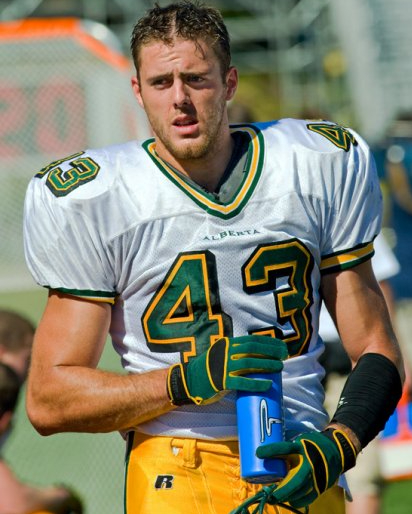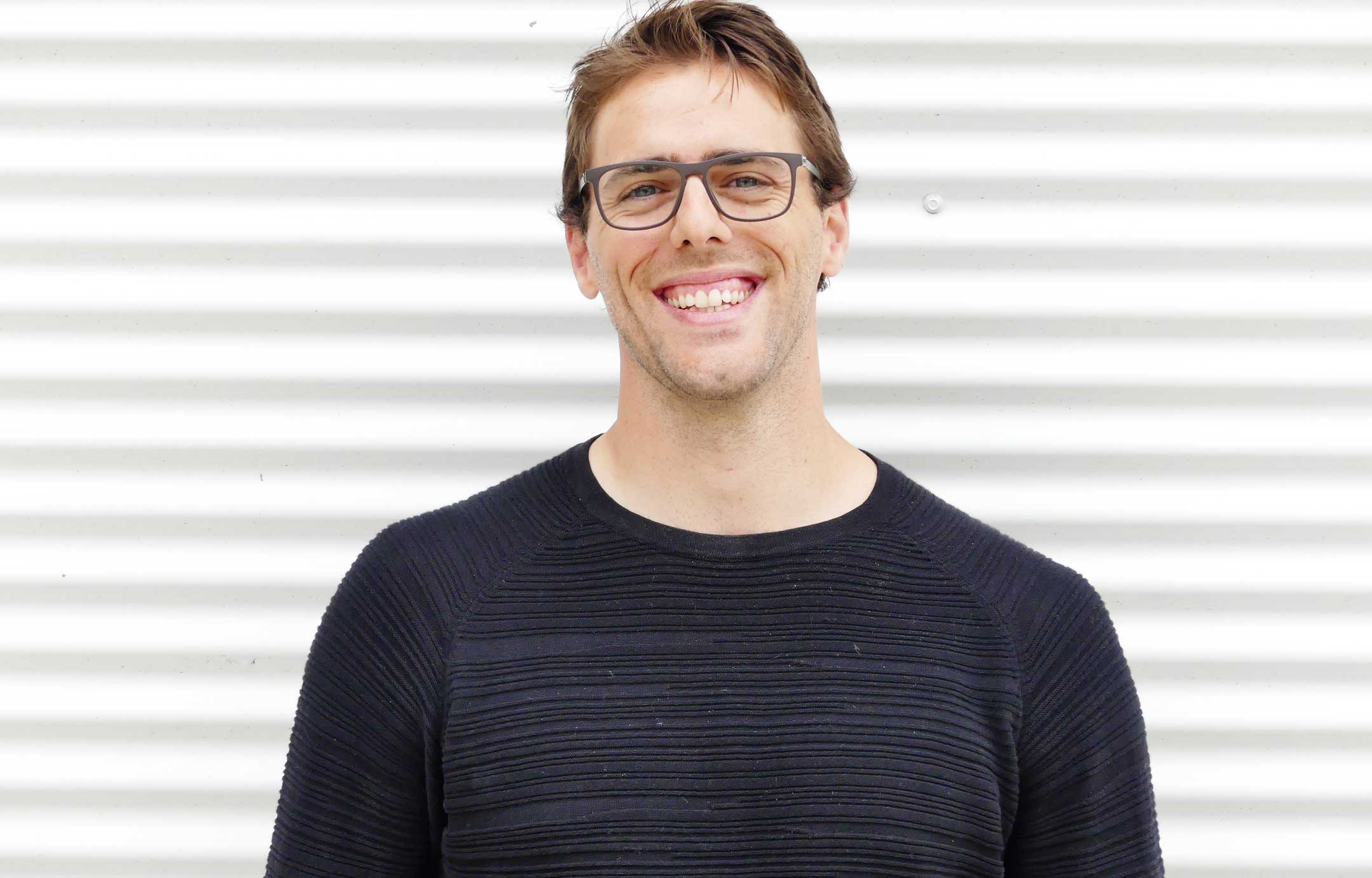Corey Kuzik remembers talking at length with his grandma about the Saskatchewan Roughriders, about the greats like George Reed, Ron Lancaster and Kent Austin, that first Grey Cup in 1966, the long wait for a second in 1989, and that maybe one day her grandson would play for the Green and White.
“So that was always the dream,” said Kuzik, who graduates this fall with a PhD from the University of Alberta’s Faculty of Kinesiology, Sport, and Recreation. “But when I got hurt, almost overnight, that was no longer the dream.”
Born in small-town Saskatchewan, Kuzik spent his formative years in Redcliff amidst the football hotbed of southern Alberta. He played football in junior high, and in high school in Medicine Hat, before jumping into the junior football ranks with the Calgary Colts.

After a year in Calgary, Kuzik and a friend packed up their shoulder pads and went west to suit up for the Okanagan Sun in Kelowna, which he did for three seasons.
At 6-foot-5 and 230 pounds, Kuzik had the size to make it as a defensive end in the bigs, and that was before his game started rounding out. In 2008, Kuzik led the BC Football Conference in quarterback sacks.
“I wasn’t super great by any means, but there may have been something available if I would have been able to continue to work hard.”
His prowess terrorizing quarterbacks got him noticed by then-Golden Bears head coach Jerry Friesen.
“Originally I was going to save my money and travel, but that changed after meeting with Jerry,” remembered Kuzik. “He had a vision for the Golden Bears football team and how I fit into that vision, and I believed in that vision.
“Unfortunately my shoulder didn't get the memo.”
A dream sidelined
“It was like losing your identity. In retrospect, though, it is the best thing that could have ever happened.”
After his rookie season in 2009, Kuzik had surgery on a nagging shoulder injury that kept him on the sidelines for what would have been his second Golden Bears season. When the shoulder didn’t respond to rehab heading into his third year, Kuzik was left to face the unfaceable—that his football days were done.
“It was like losing your identity,” he said. “In retrospect, though, it is the best thing that could have ever happened.”
Kuzik said he threw himself into his schoolwork to rebuild that broken identity.
“In a lot of ways you could say that the university community was there,” he said. “Because that community was there and education was a big part of that community and volunteering was a possibility within that community, I think it made the transition pretty easy.”
Every year during the summer, Kuzik volunteered with The Steadward Centre’s Trail Riders program, which involves taking people with limited mobility on tours of the river valley using adaptable equipment.
“It's fun building those relationships with different people,” he said.
Kuzik also participated in Read-In Week every year of his 10 at the U of A. During his undergrad, he would go to schools wearing his football jersey to read, play games and tell stories about what it’s like to be a Golden Bear.
A new focus
However, as his undergrad turned into a master’s degree and then a PhD, Kuzik’s presentations became less about his athletic exploits and more about getting the kids moving.
“I would read but also present research about how much sleep kids their age should have and what good screen-time habits are,” he said.
His change in his volunteer presentation mirrored the changes in his academic views.
“I originally came to kinesiology because I was interested in making myself a better athlete. I think getting injured reframed what you can do with kinesiology,” he said. “I became less interested in helping the top one per cent get a little bit better and more interested in helping the entire population get more active.”
Kuzik’s interest in getting kids moving was sparked by his leadership position in helping create the Canadian 24 Hour Movement Guidelines for the Earlier Years led by his PhD supervisor, Valerie Carson, who was recently named to the Royal Society of Canada’s College of New Scholars, Artists and Scientists.
“Doing my MSc degree with Val in the Behavioural Epidemiology Lab really propelled that interest in research to a full-blown passion with research,” he said.
“I was hooked.”
On Oct. 19, Kuzik began a post-doctoral fellowship under the supervision of Mark Tremblay in the Healthy Active Living and Obesity Research Group at the Children's Hospital of Eastern Ontario in Ottawa, continuing to rediscover himself.
“I often reflect back on that as a weird transition, where I went from a life of being acknowledged or rewarded for physical virtues towards a life of being acknowledged for cognitive virtues,” he said.
“I encourage all students to be reflective and make sure what you are doing aligns with where you want to be.”
